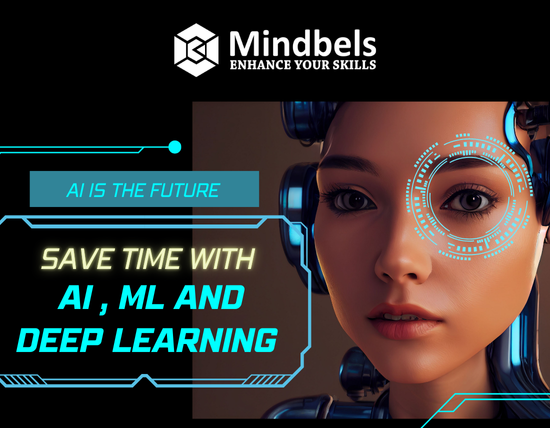
Ai , ML and Deep Certification Learning
The Transformative Power of AI: Revolutionizing Industries and Shaping the Future
Artificial Intelligence (AI) is no longer a concept of science fiction; it is a transformative force that is reshaping industries and redefining the way we live and work. From healthcare to finance, education to entertainment, AI's impact is profound and far-reaching. In this blog, we will explore how AI is revolutionizing various sectors, the challenges it presents, and the exciting future it promises.
Understanding AI: What Is It?
At its core, AI refers to the simulation of human intelligence in machines that are programmed to think and learn like humans. These intelligent systems can perform tasks that typically require human intelligence, such as recognizing speech, making decisions, and translating languages. AI is powered by algorithms, data, and computational power, and it encompasses a range of technologies, including machine learning, deep learning, natural language processing, and computer vision.
AI in Healthcare: A New Era of Medicine
One of the most significant impacts of AI is in the healthcare sector. AI algorithms are being used to diagnose diseases with unprecedented accuracy, predict patient outcomes, and personalize treatment plans. For example, AI-powered imaging tools can detect anomalies in medical scans that might be missed by the human eye. Additionally, AI is revolutionizing drug discovery by analyzing vast amounts of data to identify potential new treatments faster than traditional methods.
AI in Finance: Smarter Decisions, Better Security
The finance industry is leveraging AI to enhance decision-making, improve customer service, and bolster security. AI algorithms analyze market trends and historical data to make investment recommendations, helping traders make more informed decisions. In customer service, chatbots powered by AI handle routine inquiries, freeing up human agents to focus on more complex issues. Furthermore, AI-driven fraud detection systems monitor transactions in real-time, identifying suspicious activity and preventing financial crimes.
AI in Education: Personalized Learning Experiences
Education is another field where AI is making a significant impact. AI-driven platforms provide personalized learning experiences, adapting to each student's pace and learning style. These systems can identify areas where students struggle and offer targeted resources to help them improve. Additionally, AI-powered administrative tools streamline tasks such as grading and scheduling, allowing educators to focus more on teaching and mentoring students.
AI in Entertainment: Crafting New Experiences
In the entertainment industry, AI is being used to create new, immersive experiences. AI algorithms analyze user preferences to recommend movies, music, and games tailored to individual tastes. Moreover, AI is enabling the creation of sophisticated visual effects and realistic virtual environments in films and video games. AI-driven tools are also being used to write scripts, compose music, and even generate artwork, pushing the boundaries of creativity.
Challenges and Ethical Considerations
Despite its numerous benefits, AI also presents several challenges and ethical considerations. One of the primary concerns is the potential for job displacement as AI systems automate tasks traditionally performed by humans. Ensuring that workers are retrained and upskilled to thrive in an AI-driven world is crucial.
Privacy is another major concern, as AI systems often require access to vast amounts of personal data. Ensuring that this data is used responsibly and securely is essential to maintaining public trust. Additionally, addressing biases in AI algorithms, which can lead to unfair and discriminatory outcomes, is an ongoing challenge that requires careful consideration and action.
The Future of AI: Endless Possibilities
The future of AI is filled with endless possibilities. As AI technology continues to advance, we can expect even more innovative applications across various sectors. From autonomous vehicles to smart cities, AI has the potential to create a more efficient, safer, and more connected world.
Moreover, advancements in AI research, such as explainable AI and ethical AI, are addressing some of the challenges and concerns associated with this technology. Explainable AI aims to make AI decision-making processes more transparent, while ethical AI focuses on developing guidelines and frameworks to ensure that AI is used responsibly and for the greater good.

